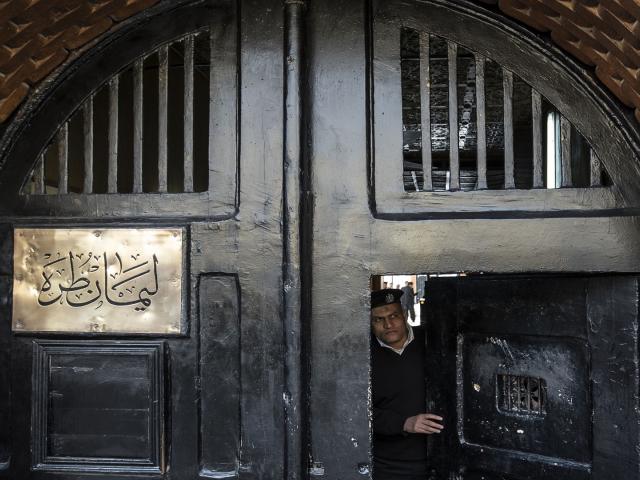
Suspended freedom: State Security Prosecution releases 88 detainees while continuing to detain them under "recycling"
News
The Egyptian Initiative for Personal Rights (EIPR) denounced the Supreme State Security Prosecution's decision to release 88 defendants in 16 cases open between 2018 and 2022, while continuing to detain them after recycling them into other open cases. The prosecution took the decision on 17th, 18th, and 24th of December. EIPR said the defendants exceeded the maximum limit of pretrial detention set by Article 134 of the Criminal Procedures Law at two years, and that some of them exceeded five years in pretrial detention, without the prosecution completing their investigation or facing them with any evidence.
The 88 defendants include Mahmoud Shaaban Ghanem, a 39-year-old worker and an EIPR’s client. He was arrested in October 2018, and appeared before the State Security Prosecution for the first time in February 2019, in connection with Case No. 277 of 2019 (Supreme State Security Prosecution). The prosecution charged him with joining a terrorist group. After spending nearly six years in pretrial detention, the prosecution decided to recycle Ghanem into a new case No. 1095 of 2022. It interrogated him for the first time in the new case two years after its launch, and then referred him to trial.
In addition to Ghanem, the State Security Prosecution ordered the release of 10 defendants in connection with Case No. 1358 of 2019, known in local media as the "Independence Party case", in which they were detained for more than five years before being recycled into another case. Among these defendants was Ihab Goha, who was detained for more than five years, ending in his death in custody last November due to medical negligence.
The Supreme State Security Prosecution “recycled” the 88 defendants during their illegal pretrial detention pending cases dating back to 2022, in which they were investigated for the first time after they spent more than two years in detention. Then, they were recycled into new cases. The prosecution decided to release them from pretrial detention for the old cases, leaving them to start further open-ended pretrial detention pending the new cases.
The Public Prosecution has recently changed its policy of relying on prolonged pretrial detention in violation of law and started to refer a number of defendants to trial while continuing to detain them despite exceeding the maximum period of pretrial detention.
There are two types of defendants recently referred to trial: The first are those who have been detained for years pending the same case, and after being referred to trial in connection with it, the period spent in pretrial detention is supposed to be deducted from the jail term they have to serve in the event of conviction. The second type is similar to the case of the 88 defendants who were recycled into new cases, as they will not benefit from deducting the period of pretrial detention from the prison sentences that may be issued against them in the new cases because their detention in the new cases procedurally began on the new referral date.
The position of the Public Prosecution is incomprehensible, as it ordered the detention of citizens for years without conviction, and kept them in pretrial detention in violation of law. Meanwhile, it did not take action in these cases that have been open for years, which raises questions about the seriousness of these cases in the first place. The prosecution then resorted to recycling the defendants into new cases on the same charges they faced before, while they remain in custody. On the other hand, the State Security Prosecution maintains its role as an indicting authority, while ignoring its role as an investigating authority. It did not conduct a single serious investigation into any of the aforementioned cases, and decided only to adopt the narrative contained in the investigation reports prepared by the National Security Sector.
The timing of the release decision and the names contained therein confirm that it was selective and did not respect the law. Rather, it was issued to ensure that the aforementioned defendants continue to be detained for as long as possible. For example, the State Security Prosecution did not decide to release EIPR client Mohamed Ahmed Saad Kolla, who has been detained in connection with Case No. 930 of 2019 for more than five years, although it released other defendants in the same case with the same legal status. The difference is that Kolla has not yet been recycled into another case, and therefore there is no guarantee that he will continue to be detained if a decision is issued to release him now.
EIPR condemns the actions taken by the Supreme State Security Prosecution, which rely on prolonged pretrial detention in violation of law, recycling defendants into new cases, and referring dozens to trial in cases launched during their detention. The prosecution should rather try those defendants in the old cases in which they have been detained for years, and end their unjust detention on fabricated charges. EIPR calls on Public Prosecutor Mohamed Shawky to intervene urgently to release all those held in pretrial detention for periods exceeding the legal maximum limit, and to drop all cases that have been open for years without completing the investigation or providing real and serious evidence.



